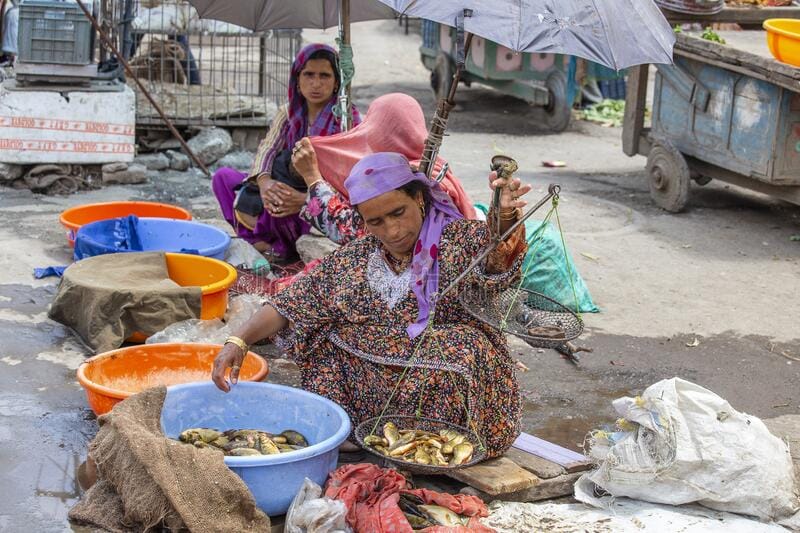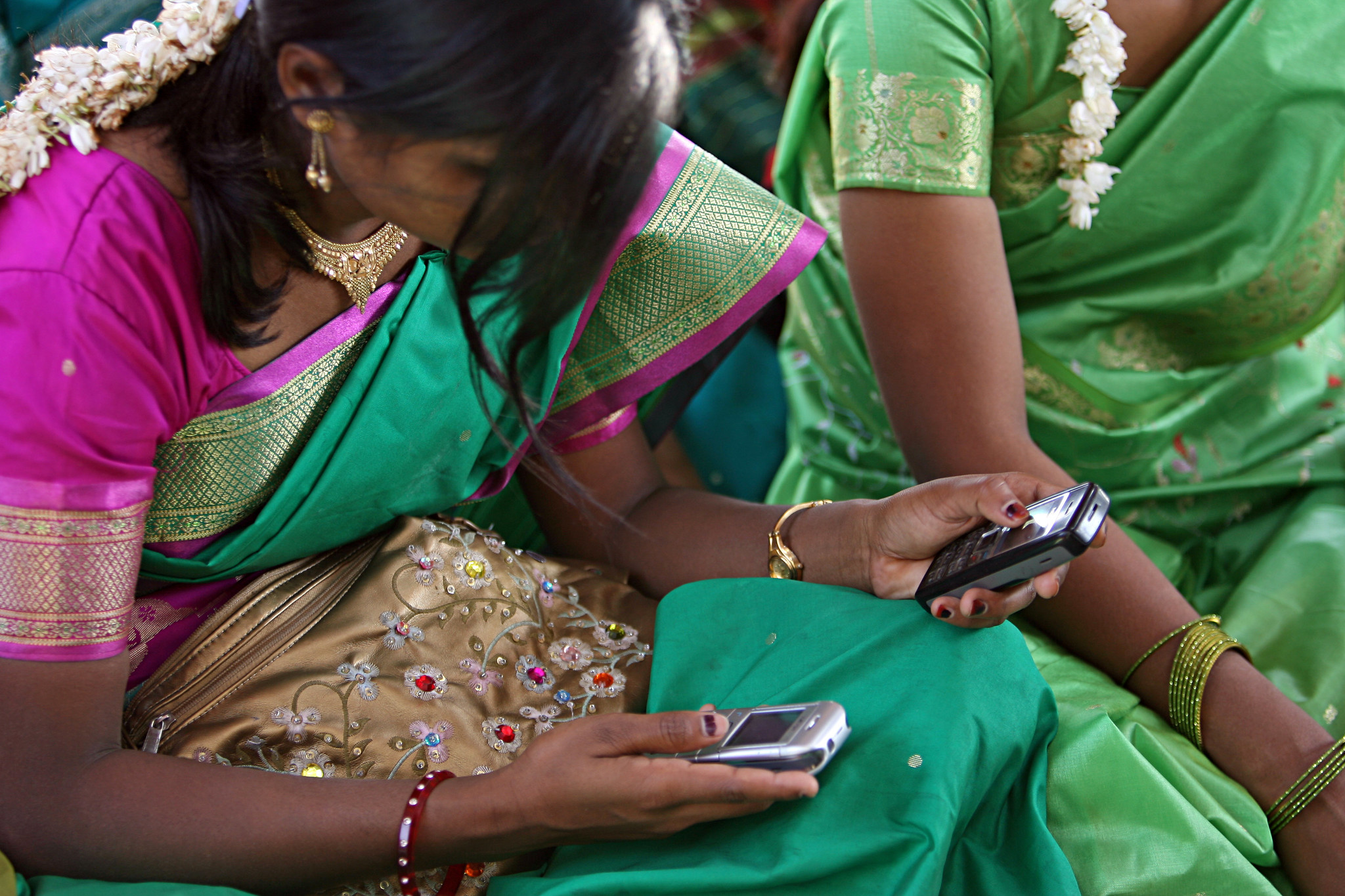The fisherwomen community in Jammu and Kashmir is facing multiple challenges, including gender inequality, poverty, and lack of education. Despite being engaged in fishing activities for centuries, these women are undervalued and often denied access to education and other opportunities. They face discrimination, and abuse, and are often paid meagre wages, which makes their lives even more challenging. The lockdowns and curfews in the region have hit this community the hardest, making it increasingly difficult for them to earn their daily bread.
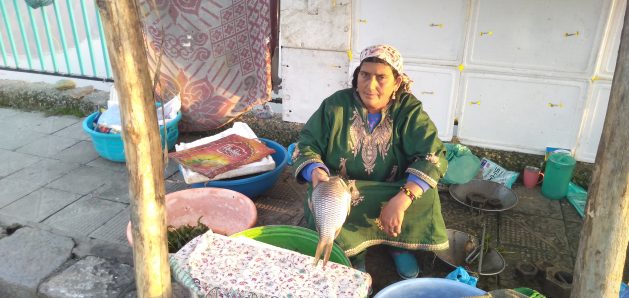
In the picturesque valleys of Jammu and Kashmir, fisherwomen are fighting a silent battle of their own.
These women wake up early in the morning, amidst the harsh weather, and take on the challenge of catching fish in the extreme cold to provide for their families. However, their hard work often goes unnoticed, and they remain invisible in society.
“We are the three friends who are selling fish in the local markets of North Kashmir, we have been through stone pelting, curfews, covid restrictions but we did not sit a single day at home because nobody is going to help our families.”
Zoona Begum
“We are the three friends who are selling fish in the local markets of North Kashmir, we have been through stone pelting, curfews, covid restrictions but we did not sit a single day at home because nobody is going to help our families,” Zoona Begum, who is selling fishes in the local market from last 20 years.
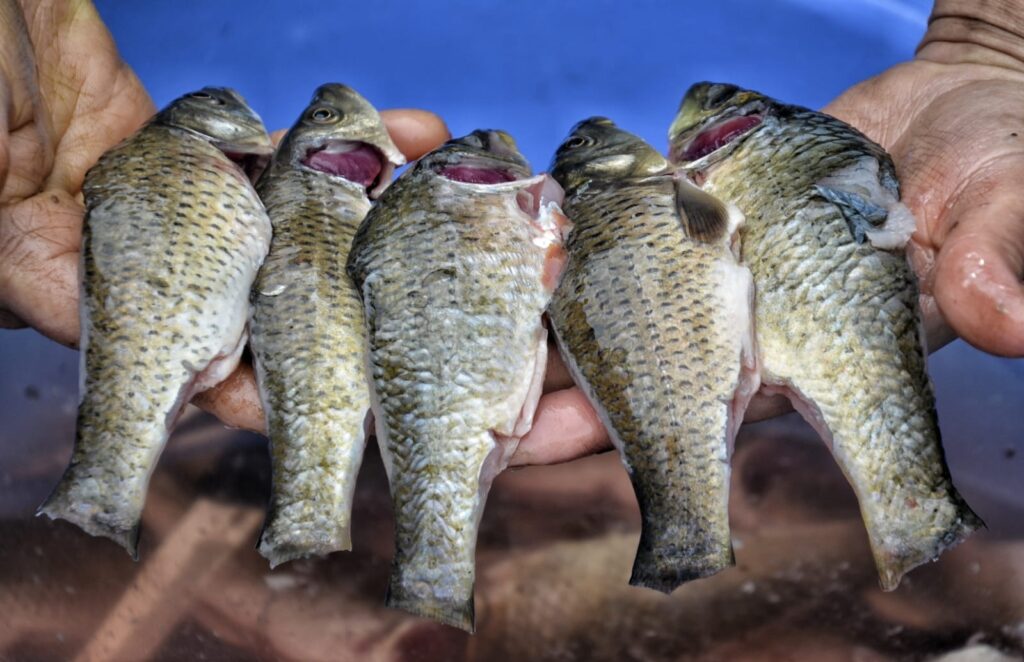
Gender inequality is one of the biggest challenges that the fisherwomen community faces. Despite contributing significantly to the local economy, these women are paid low wages, and their labour is undervalued. They are often denied access to education and other opportunities that could help them break out of the cycle of poverty. “We cannot change the mentality of rich people if we argue with them then who is going to buy fish from us? Earlier I earned 500 a day but now we hardly earn 200-250 per day. The main source of catching fish in our district is ‘Wular’ which is Asia’s second largest freshwater lake but now the increasing pollution in the lake affects the fish population in the lake,” says Sumaira, name changed, a 36-year-old woman.
Also read: Kashmiri Women Instagrammers Challenge Societal Norms And Expectations
“Sometimes people abuse us while we sell fish in local villages as we go door to door and ask them in loud voice whether they need fish. Someone who sees us walking alone offers things that are not acceptable to us. For me it was not new, I never shared this with anyone but I keep thinking at times why God had born me in this community.”
Sumaira
“Sometimes people abuse us while we sell fish in local villages as we go door to door and ask them in loud voice whether they need fish. Someone who sees us walking alone offers things that are not acceptable to us. For me it was not new, I never shared this with anyone but I keep thinking at times why God had born me in this community,” adds Sumaira. “Our work is only to give birth to children and do every work whether it is soldering fish, collecting firewood or collecting water chestnuts from the lake, for our families,” she added.
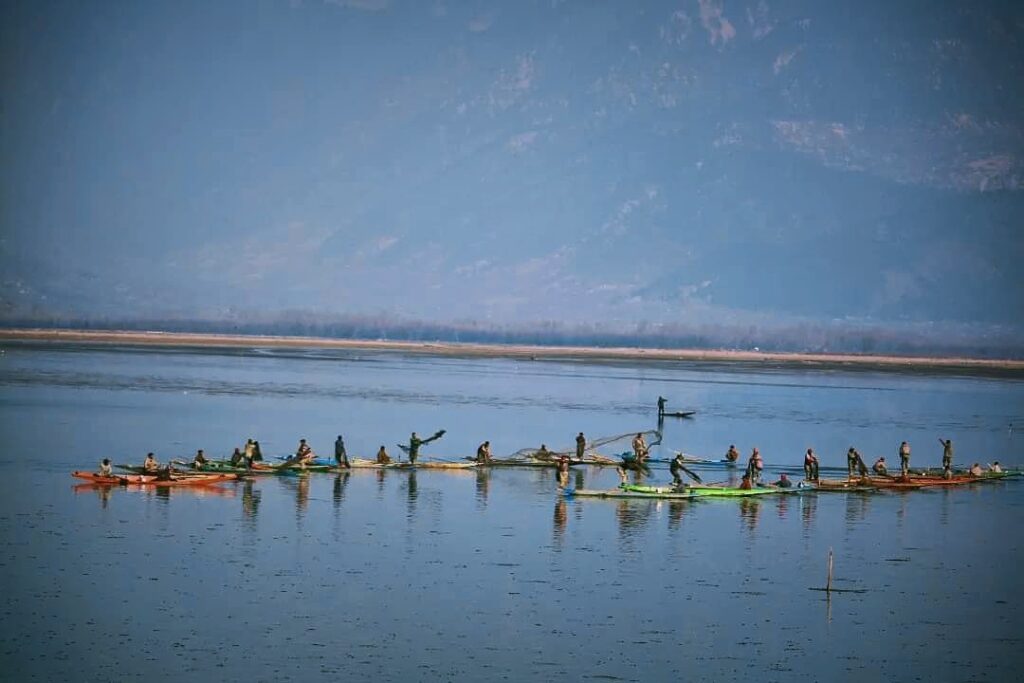
The fisherwomen community, like many other marginalised groups, has been hit the hardest by curfews, pandemic, and stone pelting situations. With their livelihoods heavily dependent on fishing, the lockdowns and curfews have made it increasingly difficult for them to venture out into the waters to earn their daily bread. But these strong women, who have always been the backbone of their families, have not let these challenges dampen their spirits. The lack of education and resources is yet another challenge that the fisherwomen community faces. Many of these women are illiterate and lack access to basic amenities such as clean drinking water and sanitation facilities. This makes their already difficult lives even more challenging.
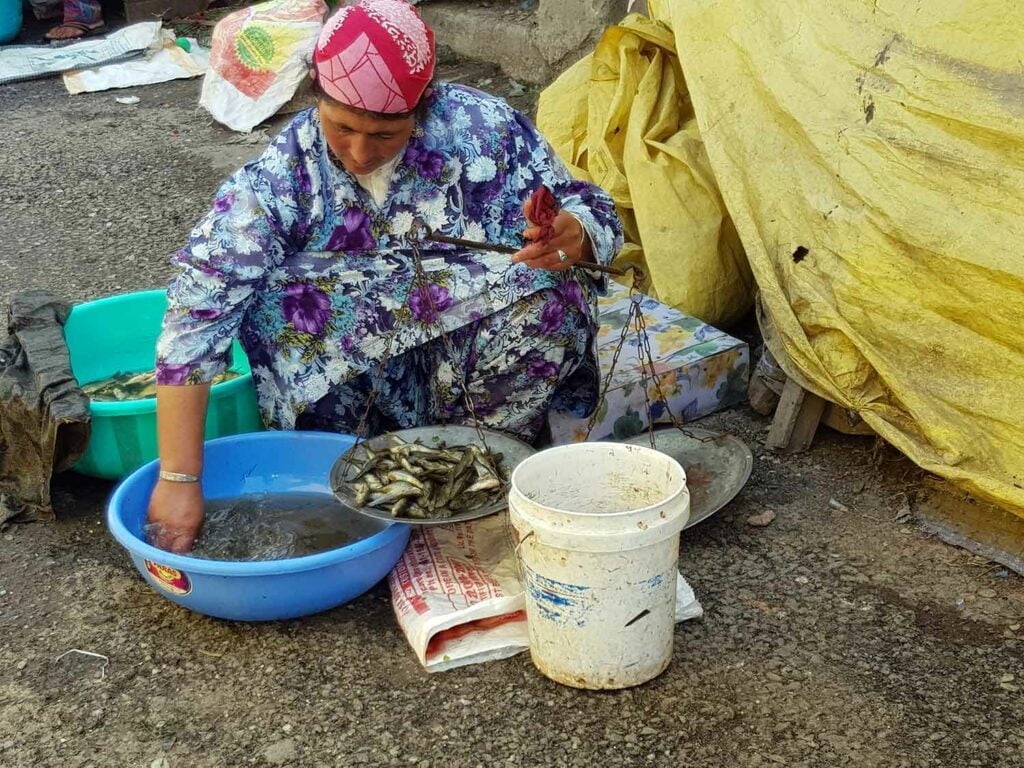
“Everybody sees us as people belonging to lower castes, I had several times decided to stop doing this but who is going to feed my family,” says Sundree, a 46-year-old woman, who is the lone bread earner of the family and making life better for her two daughters.
“Less than five percent of women have passed class 10th exams, less than two percent of the population of girls from this community are pursuing class 12th or going for higher studies,” says Aarifa, a school dropout teenage girl, to Feminism in India.
“I wouldn’t allow my granddaughter or grandson to do this job because everybody looks at us as their servants, I travel 5 km every day to two or three villages to sell my fish.”
Khatija
Another young fisherwoman named Aaliya said to FII that “I was aiming to become a doctor in my life, but it only remained a dream for me, I got done with formal education in 2015. In 2018, my family decided to marry me in our own community, to a place which was less than half a kilometre away from our home. They know our family for decades, my husband catches fish in a day and asks me to sell it in the local market. I have never done this before in my father’s home, but here, they know that I am from a fisherwomen community so I have to do it.”
Also Read: Meet The New Vastas: Kashmiri Women Breaking The Gender Disparity In The Wazwan Industry
“I wouldn’t allow my granddaughter or grandson to do this job because everybody looks at us as their servants, I travel 5 km every day to two or three villages to sell my fish,” Khatija (58) a local fisherwoman of Banyari village said to FII.
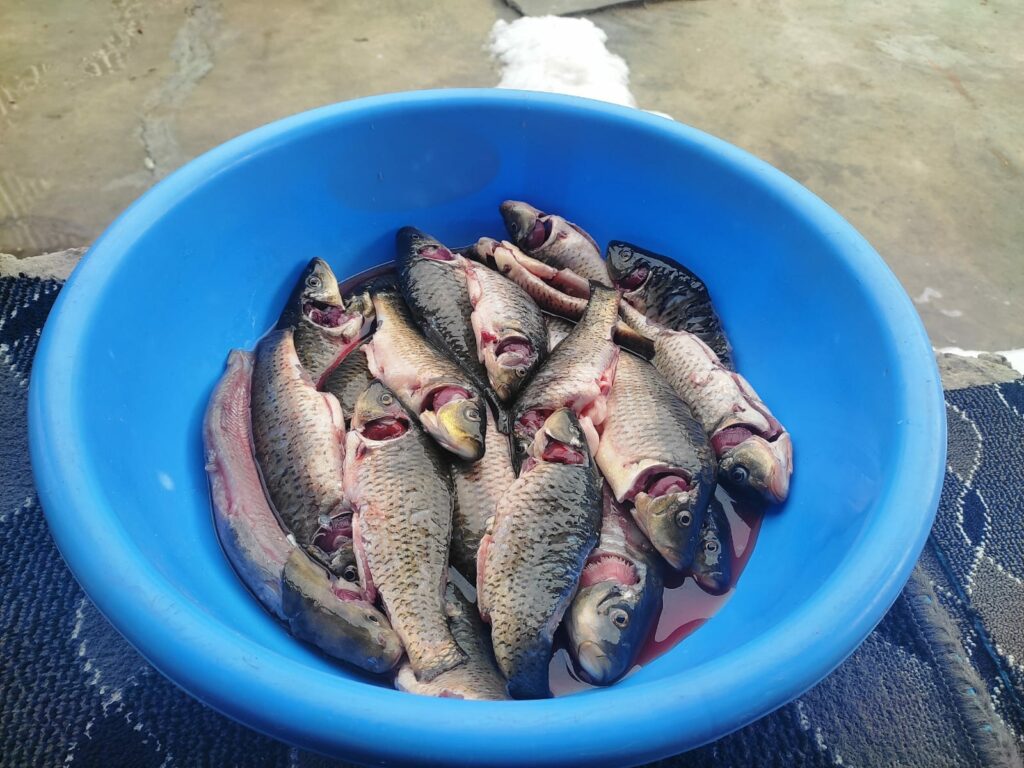
Thousands of women are involved in this job for decades now. “In summer, you hardly see any woman in our village in day hours because all women row their boats in the wee hours in Wular Lake to extract water chestnuts, working all day, and we hardly earn 200-250 per day,” a fisherwoman said.
“This is our job and we are happy but society is never going to understand the ongoing difference between upper and lower caste.” As one fisherwoman put it, “Fishing is in our blood. It’s not just a job, it’s a way of life. We will continue to fish, no matter what challenges we face, because it’s what we love and it’s what we know. We are the fisherwomen of Kashmir, and we will always be here.“
The community was totally dependent on Asia’s second-largest freshwater lake which according to them is battling for its survival due to pollution and other environmental concerns. The community is facing several problems now which include the lack of employment opportunities. Fisherwomen are paid meagre wages and their labour continues to be undervalued.
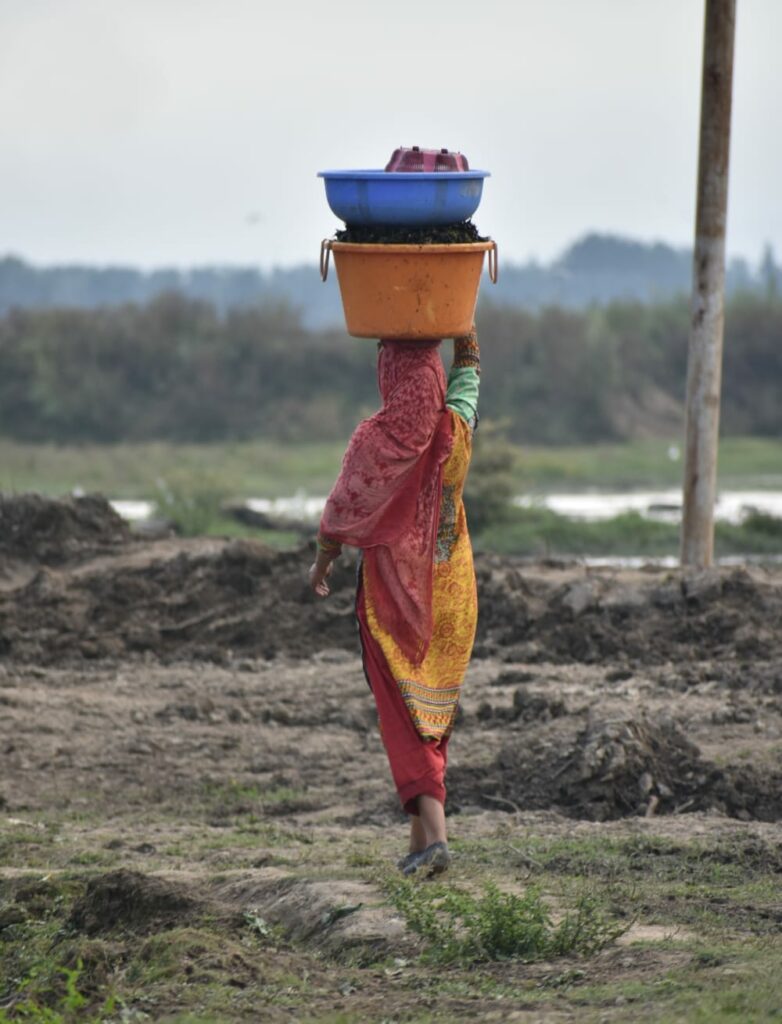
As we continue to work towards a more equitable society, it is crucial to recognise the contributions of women like the Fisherwomen of Kashmir. Their hard work and dedication have been essential in sustaining their families and communities, and it is our responsibility to ensure that their rights are recognised and protected.
The Fisherwomen community, however, is not willing to give up. These women have formed a support network, where they share their experiences and support each other. They are determined to fight for their rights and are slowly but surely making progress. They have started organising themselves into cooperatives and have been successful in securing better prices for their catch.
Also Read: Kashmiri Women Grappling With The Surge Of Gender-Based Violence And Absence Of Accountability
